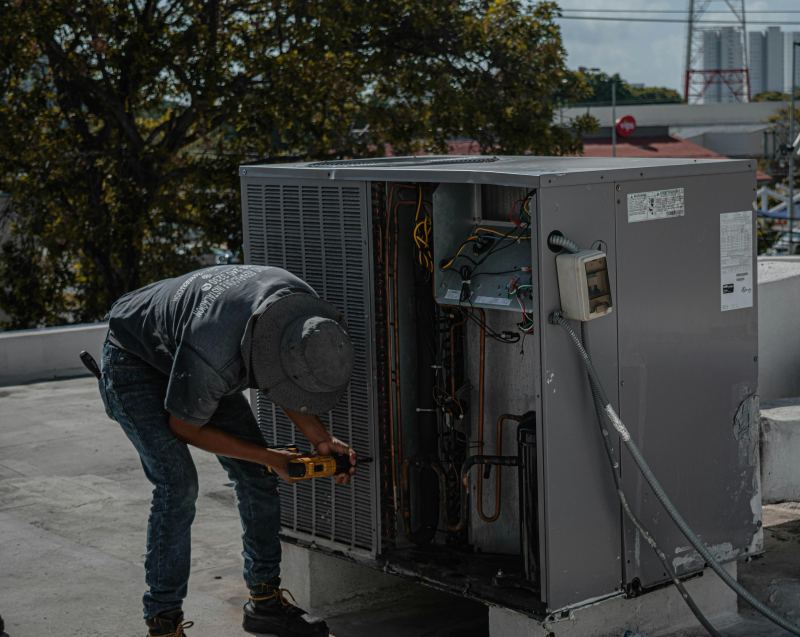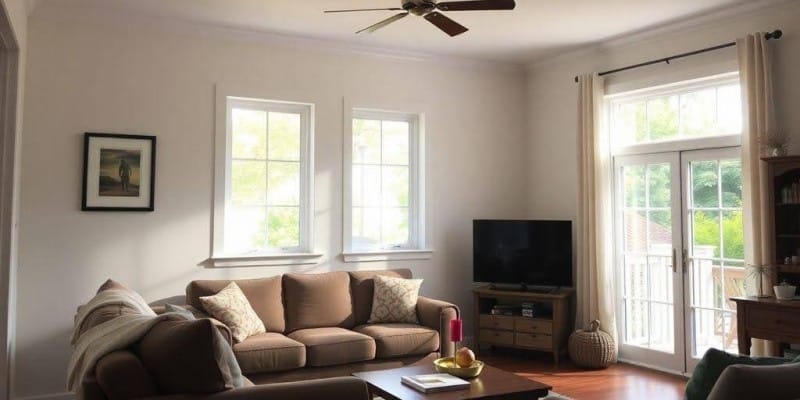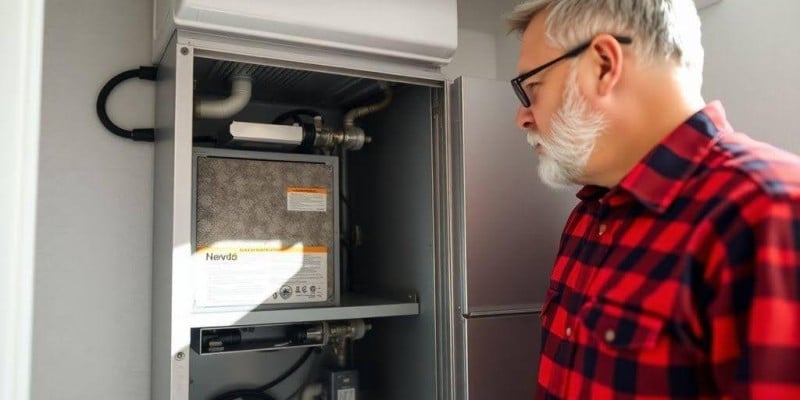Understanding the Impact of Preventative Maintenance
Think of your HVAC system like your car. You wouldn’t skip oil changes and expect it to run perfectly, right? The same applies to your home’s heating and cooling. Preventative maintenance is all about keeping things running smoothly. It’s the proactive approach to avoid bigger headaches down the road. Skipping these check-ups means your system might be working harder than it needs to, which directly impacts your wallet.
How Tune-Ups Reduce Energy Consumption
When your HVAC system gets regular tune-ups, it operates more efficiently. This means it uses less energy to heat or cool your home. Dirty filters, clogged coils, and loose parts can all make your system work overtime. A tune-up addresses these issues, leading to lower energy consumption. This direct link between tune-ups and reduced energy use is a major reason why preventative maintenance pays for itself.
The Role of Black Hills Heating, Cooling & Plumbing in Efficiency
Black Hills Heating, Cooling & Plumbing plays a key role in keeping your system efficient. Their technicians perform detailed checks during tune-ups. They clean components, check refrigerant levels, and inspect for any wear and tear. This professional attention ensures your system is in top shape. By partnering with them for regular maintenance, you’re investing in your home’s efficiency and lowering your monthly energy bills.
Prevent Costly Repairs Through Proactive Servicing
Identifying Minor Issues Before They Escalate
Think of your HVAC system like your car. You wouldn’t wait for the engine to seize before getting an oil change, right? The same logic applies to your heating and cooling. Small problems, like a slightly loose wire or a bit of dust buildup on a fan blade, can seem minor. However, left unchecked, these small issues can snowball into much bigger, more expensive problems. Proactive servicing is all about catching these little things early. It’s much cheaper to fix a worn belt than to replace a whole motor that burned out because of that worn belt. This preventative approach saves you money and hassle down the line.
Avoiding Unexpected Breakdowns and Downtime
Nobody wants their air conditioning to quit on the hottest day of the year, or their furnace to give out during a cold snap. Unexpected breakdowns are not only inconvenient, but they can also be dangerous, especially during extreme weather. Regular check-ups help keep your system running smoothly, reducing the chances of it failing when you need it most. This means no more emergency repair calls in the middle of the night or scrambling to find a temporary heating solution. Consistent care means consistent comfort and reliability.
The Financial Benefits of Early Detection
Catching problems early through preventative maintenance offers significant financial advantages. Instead of facing a hefty bill for a major component failure, you’re dealing with the cost of a routine tune-up. This proactive strategy helps avoid those surprise, large repair expenses that can really strain a household budget. Investing a little regularly in preventative servicing is almost always less expensive than paying for major repairs later. It’s a smart financial move that protects your home comfort system and your wallet. The cost of neglecting maintenance far outweighs the cost of regular check-ups.
Enhance System Lifespan with Consistent Care
How Routine Checks Extend Equipment Longevity
Think of your HVAC system like a car. If you never change the oil or check the tires, it’s going to break down sooner rather than later. The same applies to your heating and cooling equipment. Regular check-ups, often called preventative maintenance, are key to making sure your system lasts as long as it’s supposed to. These tune-ups catch small problems before they turn into big, expensive ones. For example, a technician might notice a worn belt or a slightly low refrigerant level during a routine visit. Addressing these minor issues promptly prevents them from causing major damage down the road, which directly contributes to a longer system lifespan.
Maximizing Your Investment in Home Comfort
Your HVAC system is a significant investment in your home’s comfort. Consistent care helps you get the most out of that investment. When your system runs efficiently, it means you’re not wasting energy, and that translates to lower monthly bills. Beyond just saving money, a well-maintained system provides more consistent temperatures throughout your home. No more cold spots in the winter or hot spots in the summer. This consistent performance means you’re always comfortable, no matter the weather outside. It’s about getting reliable comfort year after year.
The Connection Between Maintenance and System Durability
There’s a direct link between regular maintenance and how long your HVAC system will last. Most systems are designed to operate for 10 to 15 years, but this is often under ideal conditions. With consistent preventative maintenance, you can realistically expect to reach or even exceed that lifespan. During these service calls, technicians clean components, lubricate moving parts, and check electrical connections. This attention to detail reduces wear and tear on the system’s parts. Ultimately, this proactive approach to system durability means fewer unexpected breakdowns and a more reliable source of comfort for your home.
Improve Home Comfort and Air Quality
Ensuring Optimal Airflow for Consistent Temperatures
When your HVAC system runs smoothly, it means air moves freely through your home. This consistent airflow is what keeps your rooms at the temperature you set on the thermostat. Think of it like breathing – if your airways are clear, you breathe easily. If they’re blocked, it’s a struggle. The same applies to your HVAC. Blocked vents or a dirty system makes it work harder, leading to uneven temperatures. One room might be freezing while another is stuffy. Regular check-ups help clear these blockages, making sure your home stays comfortable everywhere.
The Importance of Clean Filters for Breathing Air
Your HVAC system has filters, and they do more than just protect the equipment. They also catch dust, pollen, and other tiny particles floating around your house. When these filters get clogged, they can’t trap these things effectively. This means more dust and allergens can circulate in the air you breathe. Changing your air filter regularly is one of the simplest ways to improve your home’s air quality. It’s a small task that makes a big difference in creating a healthier living space for everyone.
Achieving a Healthier Indoor Environment
Beyond just temperature, a well-maintained HVAC system contributes to a healthier home. By keeping the system clean and filters changed, you reduce the amount of dust, mold spores, and other irritants that get blown around. This can be especially helpful for people with allergies or asthma. A system that’s working efficiently also means less strain on the equipment, which can prevent issues like moisture buildup that might lead to mold. It’s all about creating a comfortable and healthy atmosphere inside your home, year-round.
Read Also: Enhancing Indoor Air Quality in Business Spaces with HVAC
Understanding What Preventative Maintenance Entails
Preventative maintenance for your HVAC system is like giving your car regular oil changes and tune-ups. It’s about proactive care to keep things running smoothly and avoid bigger problems down the road. This type of servicing involves a series of checks and adjustments performed by a qualified technician. The goal is to catch minor issues before they turn into major, expensive repairs and to keep your system operating at peak efficiency.
Key Checks for Heating System Performance
When it comes to your heating system, preventative maintenance typically includes inspecting the heat exchanger for cracks, cleaning and calibrating the thermostat, checking the burner assembly for proper ignition and flame, and testing safety controls. Technicians will also examine the blower motor and fan for wear and tear, lubricate moving parts, and ensure the flue is clear for safe exhaust. A thorough check of the electrical connections and wiring is also part of the process.
Essential Servicing for Cooling Systems
For your cooling system, preventative maintenance involves cleaning the condenser and evaporator coils, checking refrigerant levels, and inspecting electrical components like capacitors and contactors. The technician will also test the condensate drain line to prevent clogs and water damage, inspect the blower motor and fan, and ensure the thermostat is accurately controlling the system. Lubrication of moving parts is also a key step.
The Value of Professional Inspections
While some basic tasks like changing air filters can be done by homeowners, the full scope of preventative maintenance is best handled by professionals. They have the specialized tools and knowledge to identify subtle problems that could lead to breakdowns. A professional inspection can uncover issues with wear and tear on components, potential refrigerant leaks, or electrical faults that might not be obvious to the untrained eye. This proactive approach is key to maintaining system longevity and efficiency.
The Financial Advantages of a Maintenance Plan
Lowering Monthly Utility Bills Significantly
Think about your energy bills. When your HVAC system runs smoothly, it doesn’t have to work as hard. This means it uses less electricity or gas to keep your home comfortable. A well-maintained system is an efficient system, and efficiency directly translates to lower monthly utility bills. It’s a simple equation: less strain on the equipment equals less energy consumed. This is where the real savings start to add up over time, making a maintenance plan a smart financial move.
Reducing the Need for Expensive Component Replacements
Regular check-ups catch small problems before they become big, costly ones. A worn belt, a slightly dirty coil, or a low refrigerant level might seem minor, but left unaddressed, they can lead to serious damage. This kind of damage often requires replacing expensive parts like the compressor or fan motor. Investing in preventative maintenance means you’re less likely to face these surprise, high-cost repairs. It’s about proactive care to avoid major financial hits.
Gaining Peace of Mind with Priority Service
Beyond the direct cost savings, a maintenance plan often includes priority service. This means if something does go wrong, especially during peak seasons like a heatwave or cold snap, you’ll be moved to the front of the line. No more waiting days for a technician when your home is uncomfortable. This priority access not only saves you from discomfort but also prevents minor issues from escalating while you wait for service. It’s a valuable benefit that adds to the overall financial advantage of having a plan.
Signs Your HVAC System Needs Immediate Attention
Even with regular check-ups, your HVAC system might give you signals that something’s not quite right and needs immediate attention. Ignoring these signs can lead to bigger problems and higher costs down the line. It’s always better to catch issues early.
Recognizing Unusual Noises and Performance Issues
Listen closely to your HVAC unit. Strange sounds like grinding, banging, or even persistent rattling are red flags. These noises often point to mechanical issues within the system, such as a failing motor or loose parts. Beyond noise, pay attention to how your system is performing. Is it taking longer to heat or cool your home? Are some rooms significantly warmer or cooler than others? These performance dips suggest your system is working harder than it should, possibly due to a blockage or a component that’s not functioning correctly. A system that cycles on and off too frequently, known as short-cycling, is another indicator that something is wrong.
Addressing Sudden Increases in Energy Bills
Your monthly energy bills can be a direct reflection of your HVAC system’s health. If you notice a sudden, unexplained spike in your electricity or gas costs, your HVAC system is a likely culprit. This often happens when the system is struggling to maintain the desired temperature, leading to increased energy consumption. For instance, dirty air filters or clogged coils can make your system work overtime, driving up those bills. A sudden increase in energy bills is a clear sign that your HVAC system needs a professional inspection to identify the cause of the inefficiency.
When to Schedule an Inspection with Black Hills Heating, Cooling & Plumbing
If you’re experiencing any of the issues mentioned above – unusual noises, inconsistent temperatures, or a sudden jump in your energy bills – it’s time to call the professionals. Black Hills Heating, Cooling & Plumbing specializes in diagnosing and fixing HVAC problems. They can perform a thorough inspection to pinpoint the exact cause of the malfunction. Scheduling an inspection promptly can prevent minor issues from becoming major, costly repairs and help restore your home’s comfort and your system’s efficiency. Don’t wait for a complete breakdown; proactive service is key.
The Takeaway: Keep Your System Running Smoothly
So, when it comes down to it, taking care of your heating and cooling system really pays off. Skipping out on regular check-ups might seem like a way to save a buck now, but it often leads to bigger problems and higher bills down the road. Think of it like taking your car in for oil changes; it just keeps things running better for longer. By getting those tune-ups and keeping filters clean, you’re not just making sure your home stays comfortable, you’re also helping your system use less energy. That means more money stays in your pocket each month, and you avoid those surprise repair costs that nobody wants to deal with. It’s a pretty straightforward way to look after your home and your budget.



